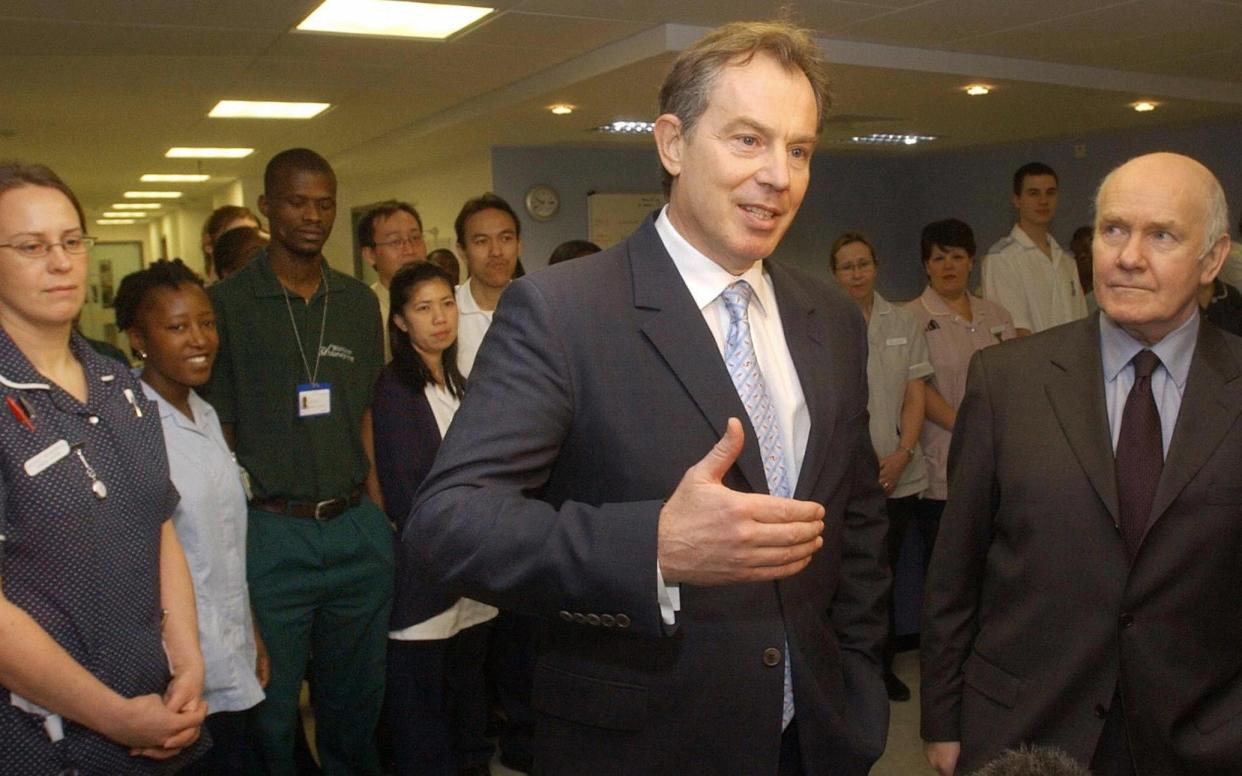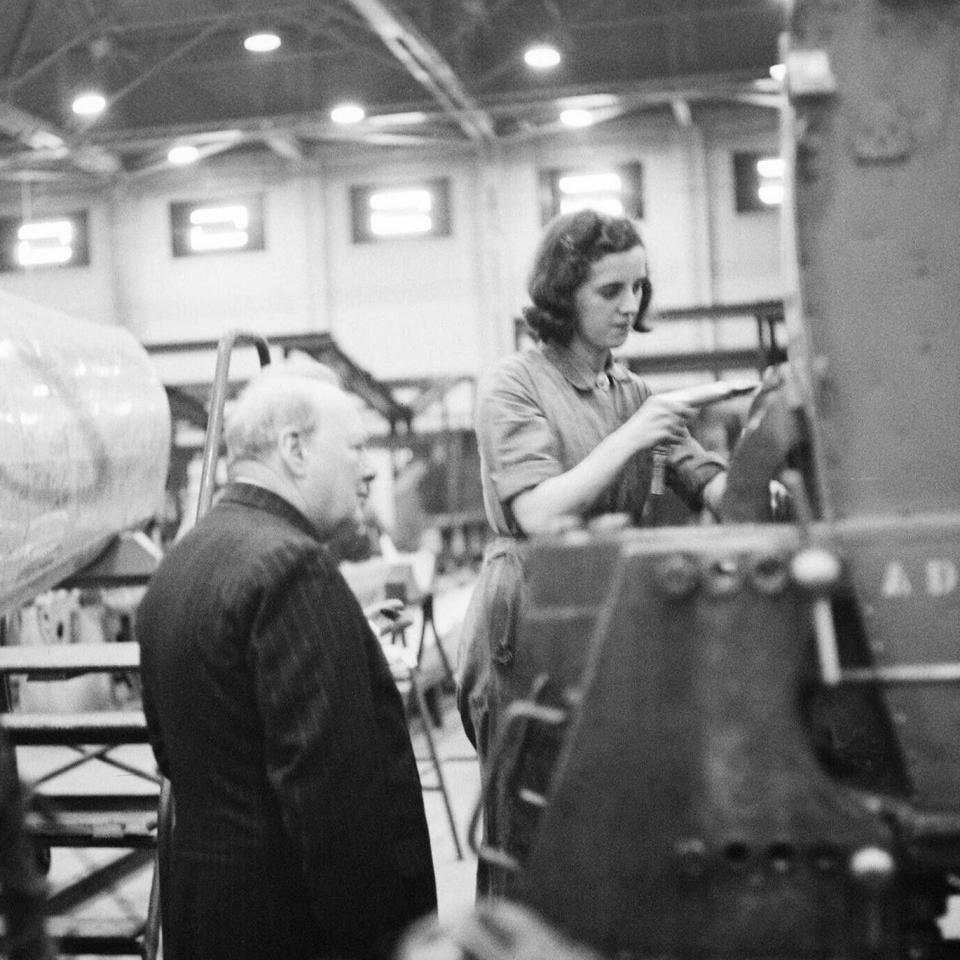Letters: The NHS reforms that eroded continuity of care in general practice

SIR – The concept of GPs having their own patients (Leading Article, November 30) – as envisaged by Nye Bevan – was destroyed in 2004, when NHS contracts were shifted from individual doctors to practices.
Before that, a named doctor had cradle-to-grave responsibility for named patients. The doctor was the general practitioner; now it is a general practice that handles those who manage to get through the door. Often the care itself is carried out by locums.
The dissatisfaction, among both patients and doctors, with poor continuity of care and idiosyncratic use of remote consultations could be addressed if the Government reverted to the clinical relationships of 1948, revoking Tony Blair’s reforms and restoring the concept of the family doctor.
Dr Andy Ashworth MRCGP
Bo’ness, West Lothian
SIR – Recent suggestions that patients should see the same GP have brought a wry smile to my face. In September last year, aged 83, I had a heart attack. I was well cared for in Peterborough and Papworth, and discharged with a bagful of medication.
After that I was monitored by telephone for a year by an excellent specialist nurse in Lincoln, and had two telephone conversations in the first six months with my GP about adjustments to my prescription. I have not been seen by a GP at all, let alone the same one.
Since my (and my wife’s) GP left the practice some months ago, we haven’t known who our GP is – or, indeed, whether we have one. The practice has not even got round to informing us of his departure.
Graham Creedy
Stamford, Lincolnshire
SIR – Recently my brother had a telephone consultation with a GP who had previously been warm and empathetic. However, on this occasion, the GP was short and seemingly uninterested in what my brother was trying to tell him. Towards the end of the call my brother could hear children playing in the background.
The doctor was clearly working from home. This is dangerous and unacceptable; it is not to do with resources but with attitude and ethics, and would have been unheard of in my day. Where is the General Medical Council in all of this? Who is leading the profession?
Simon Harper
Penhallow, Cornwall
SIR – Dr Malcolm Wheeler (Letters, November 30) will be pleased to know that, as a medical student in the 2010s, I was taught the same principles of clinical examination as he was in the 1960s. This is part of the intellectual pursuit that makes medicine a pleasure to practise, and why face-to-face GP appointments remain vital.
Dr Adam O’Connor
Altrincham, Cheshire
A towering statesman
SIR – So, farewell to Henry Kissinger (report, telegraph.co.uk, November 30). In my humble opinion, he was the greatest American statesman since Abraham Lincoln.
Justin Tahany
Reading, Berkshire
SIR – A friend of mine was present at a journalists’ lunch in Australia at which Henry Kissinger was the guest of honour.
Someone asked Kissinger how the course of world affairs might have been changed if Nikita Khrushchev had been assassinated instead of John F Kennedy.
The great statesman mulled this over for a moment or two. “I cannot say how different the world might have been,” he eventually replied in his deep, ponderous drawl, “but I believe I can state with some confidence that Aristotle Onassis would not have married Nina Khrushcheva.”
Tony Roberts
Cheltenham, Gloucestershire
The true paella
SIR – Having lived in rural Valencia, where all my neighbours were Spanish and cooked a paella virtually every weekend, I was taught how to make the dish (Letters, November 30).
The first thing to understand is that paella is not a risotto, which is made completely differently. A true Valencian paella should consist of water from the Valencia region. When the locals went to visit friends outside Valencia, they would take Valencian water with them for the paella. The rice should be the short-grain Bomba variety, grown in the Valencian rice fields of Albufera.
The meat should be conejo (rabbit) which has been reared locally. Ideally, the paella should also have caracoles (snails) added to it.
Very often I would see the locals scouring the bushes for snails on Saturday ready for adding to the paella on Sunday.
The locals would add chicken stock and lots of salt, although I wouldn’t recommend that. Two other key ingredients are saffron and romero (rosemary).
At the end of the cooking you should be able to turn the paella dish upside down without the paella falling out. The crusty bottom of the rice is called the socarrat and is much sought after.
Wash it all down with a glass of strong Spanish red wine and you’re done.
Stan Kirby
East Malling, Kent
Pandemic preparation
SIR – I am a retired GP and farmer who worked through both Covid and foot-and-mouth, and the similarities are striking. We did not start from a point of total ignorance in March 2020.
What was clear from the foot-and-mouth disease inquiry report was that the mere three-day delay between discovering the virus and imposing an animal movement ban – plus the return of thousands of sheep from the epicentre of the virus to their home farms – greatly spread infections. Furthermore, we had already done pandemic planning for foot-and-mouth, based on a novel virus from China. Sound familiar?
When it came to Covid, diagnosis, testing, isolation, remote consulting and PPE use were all listed in our practice pandemic plan, last updated after swine flu.
Untested transfers to care homes were challenged but ignored. PPE stocks had dwindled in what turned out to be a very expensive cost-saving when prices soared.
We had the lessons from other countries too, but ignored them. Deaths in Italy mirrored ours, just two weeks earlier, yet we dithered over the immediate measures that a pandemic response demands. South Korea highlighted loss of smell as a unique symptom, yet we took another eight weeks to accept that.
Those who raise these issues are now told they are wise with the benefit of hindsight. There shall be more lessons to learn, though the cynic may say they will simply be forgotten.
Dr John Locke
Kirkcudbright
SIR – In the absence of a comprehensive inquiry into the Covid pandemic by the Trudeau government here in Canada, a National Citizens’ Inquiry was set up independently, outside government control.
After more than a year of widespread consultation with physicians, academics, officials, and ordinary people across the country, the final report is now available online as a downloadable PDF.
It is a remarkable document that addresses many of the issues the UK inquiry seems keen to avoid, and questions in depth the medical, ethical and legal responses to the pandemic. Everyone interested in the worldwide response to Covid should read it.
Dr Stephan Larsson
Onslow Mountain, Nova Scotia, Canada
A greener Cop
SIR – An online Cop summit (report, November 30) would be a more significant statement about the issue of climate change than a gathering of 70,000 delegates could ever make.
Peter Baynes
London W1
SIR – When I wanted to put solar panels on my roof, the local conservation officer said that because the house is listed (a lowly Grade II) it would not be allowed.
How come King’s College Chapel in Cambridge (rightly listed Grade I) has been allowed to put 438 panels on its roof (report, November 29)?
Charles Barrington
Woodbridge, Suffolk
Set the bar high
SIR – My partner’s mother received a beautifully wrapped crowbar for Christmas (Letters, November 30), hidden under the bed until the day. It was not full-sized, so was perfect for a strong lady and wonderful gardener.
It is still working hard and evokes happy memories whenever it is used.
Sue Leach
Orton, Cumbria
Volunteering for service in the Spitfire factory

SIR – I read with interest your obituary (November 24) of Elinor Otto. My late mother, Iris, was one of the British “Rosie the Riveters”. In 1941, aged 25, she gave up her business as a hairdresser and trained as a riveter at the Vickers factory in Castle Bromwich, Warwickshire.
Clad in overalls with her hair in a turban, just like Rosie, she riveted the leading edges on Spitfire wings – one of the most difficult jobs as a result of their tight curvature. She knew Alex Henshaw, Vickers’s chief test pilot, and remembered Winston Churchill visiting the factory.
In all, Castle Bromwich produced 12,000 Spitfires. When asked why she did the job, she answered: “When I look up and see them flying over, I think something I made is up there, helping us win the war.”
At her funeral (she died aged 96), we could not organise a flypast for her, but played a recording of a flight of Spitfires overhead. The throb of the Rolls-Royce Merlin engines reverberated throughout the chapel.
Ken Kilmister
Claygate, Surrey
Chernobyl children and the risks of radiation
SIR – Linda Walker, executive director at the Chernobyl Children’s Project, criticises our social enterprise,
which makes spirits from crops grown in Chernobyl-affected areas of Ukraine and gives profits to support communities there (report, telegraph.co.uk, November 24).
Our project is in no way a “propaganda exercise”: it is in large part an attempt to communicate accurate scientific information about Chernobyl in an accessible way. The disaster had major psychological, social and economic consequences for people in affected areas. These have been exacerbated by misinformation about the risks of radiation.
There is a huge volume of scientific evidence to show that radiation levels in inhabited areas near Chernobyl are very low – lower than natural radiation levels in parts of Cornwall. While I support help for children growing up in poor communities anywhere in Belarus or Ukraine, there is no evidence that they are exposed to significant radiation risk.
If Chernobyl children are being told that their home environment is seriously contaminated, they are being misled. They have enough to contend with, and do not need the extra worry of small radiation risks to their health.
Professor J T Smith
School of Environmental, Geographical and Geological Sciences
University of Portsmouth
Letters to the Editor
We accept letters by email and post. Please include name, address, work and home telephone numbers.
ADDRESS: 111 Buckingham Palace Road, London, SW1W 0DT
EMAIL: dtletters@telegraph.co.uk
FOLLOW: Telegraph Letters on Twitter @LettersDesk
NEWSLETTER: sign up to receive Letters to the Editor here

